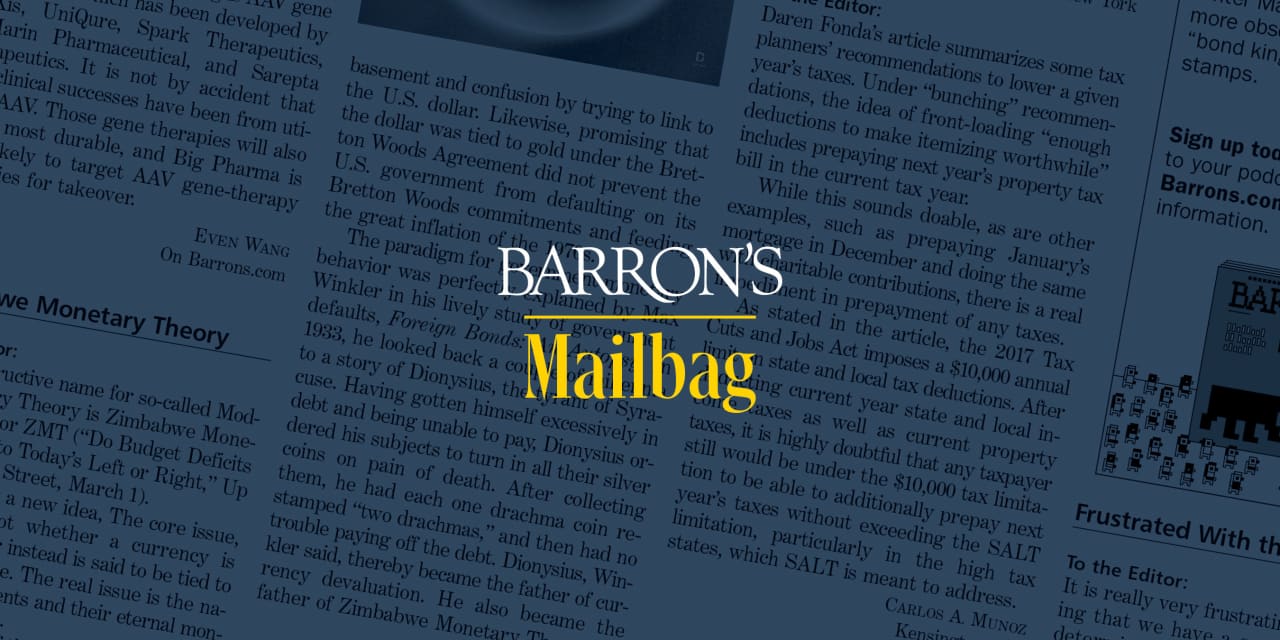To the Editor:
Yes, bonds are finally a viable option, but for years and years, they offered scant yield plus high risk when rates finally did take off (“It’s Time to Stop Crying About Bonds and Buy Them Instead,” Cover Story, Oct. 27).
That didn’t stop the wealth management industry from relentlessly pushing the portfolio of 60% stocks and 40% bonds, and now we’ve seen the results.
Brian Henry,
On Barrons.com
Doing the Math
To the Editor:
I’ve been around for a while, and this is the first time in my life where there has been a major geopolitical event without the dollar or Treasuries getting a bid (“Investors Are Worried About Government Spending,” Oct. 27). It isn’t that investors aren’t taking the Gaza situation seriously; gold is up about $150 since this started.
I suspect that investors are doing the math. Not only is our ever-expanding debt unsustainable, but also there’s doubt as to whether it can be serviced short of monetizing it.
Most people would regard the idea of swapping out Treasuries for gold as insane.
As Ken Kesey pointed out in One Flew Over the Cuckoo’s Nest, sometimes the insane is sane.
Gene Sweet
Chicago
Wisdom of the Crowds
To the Editor:
Eighty-five percent of Big Money Poll respondents think the 10-year Treasury will be 5% or lower this time next year; 75% think the federal-funds rate will be 5.25%-plus; and yet only 46% bet that a recession will come in that time (“Big Money Pros Are Split on the Outlook for Stocks. But They Are Fans of Bonds,” Oct. 27).
Let’s see if the bear steepener has anything to say about this, or maybe the wisdom of crowds foresees a new curve-inversion clock starting next year.
David Johnson
Brooklyn, N.Y.
Blanchflower’s Research
To the Editor:
This was one of the most important and insightful interviews that Barron’s has ever published (“Unhappiness Is Consuming Young Americans. It Could Hobble the Economy,” Interview, Oct. 26).
Dartmouth College professor David Blanchflower’s research on adverse childhood experiences has shed light on a critical yet often underestimated factor contributing to prevailing labor market challenges and generational economic malaise.
Expanding coverage on the intersection of mental health and financial markets would greatly benefit Barron’s readers, enhancing their understanding of this new economic landscape.
Rishi Jaggernauth
Ocean, N.J.
Send letters to: [email protected]. To be considered for publication, correspondence must bear the writer’s name, address, and phone number. Letters are subject to editing.
Read the full article here













